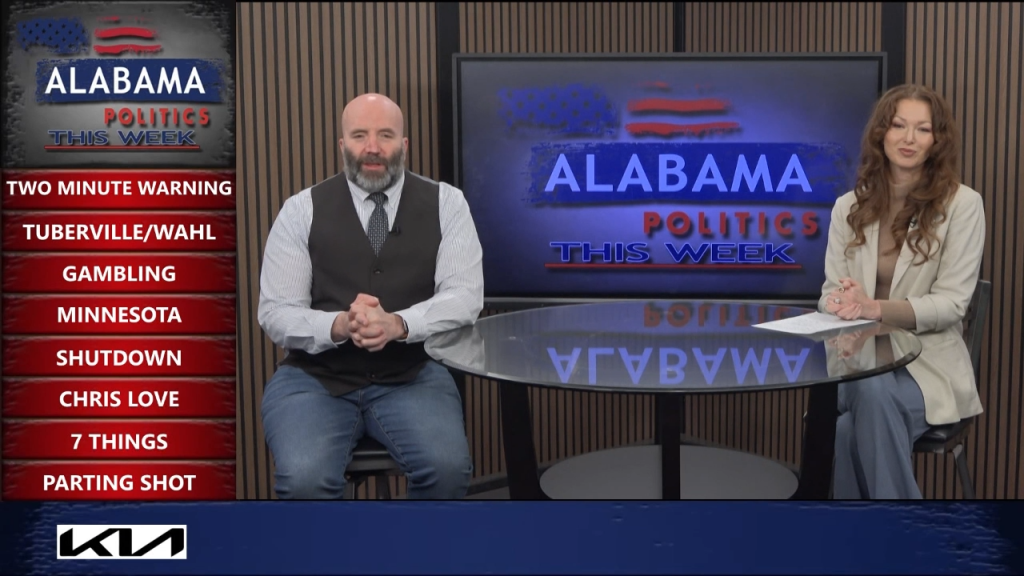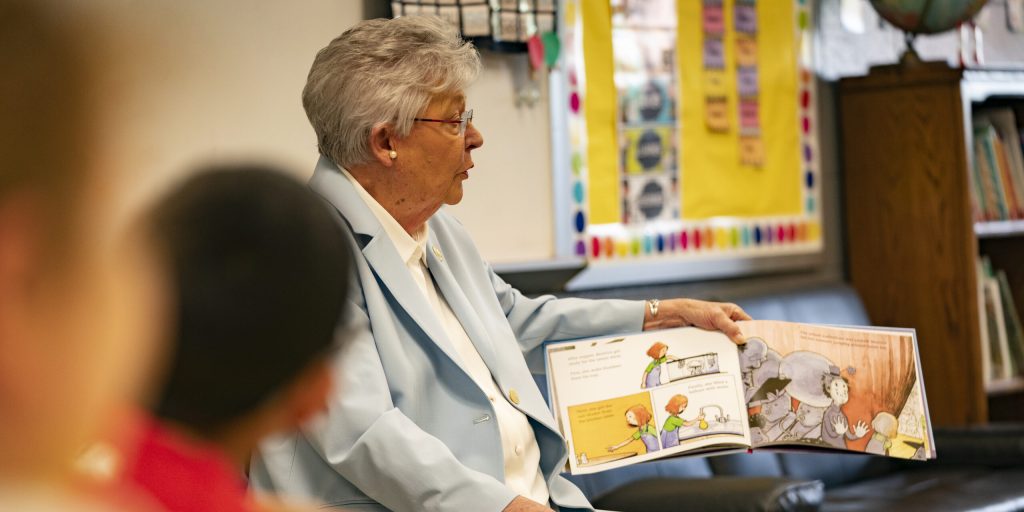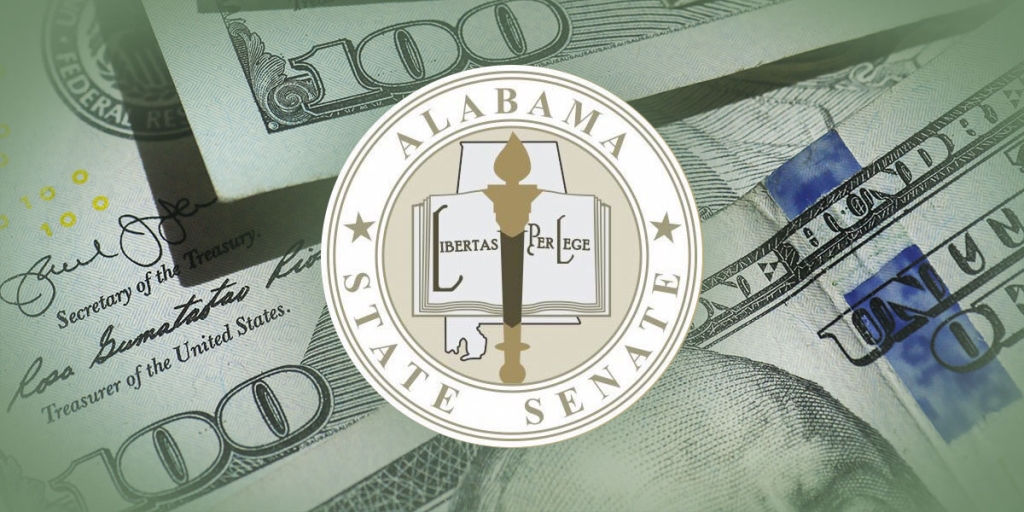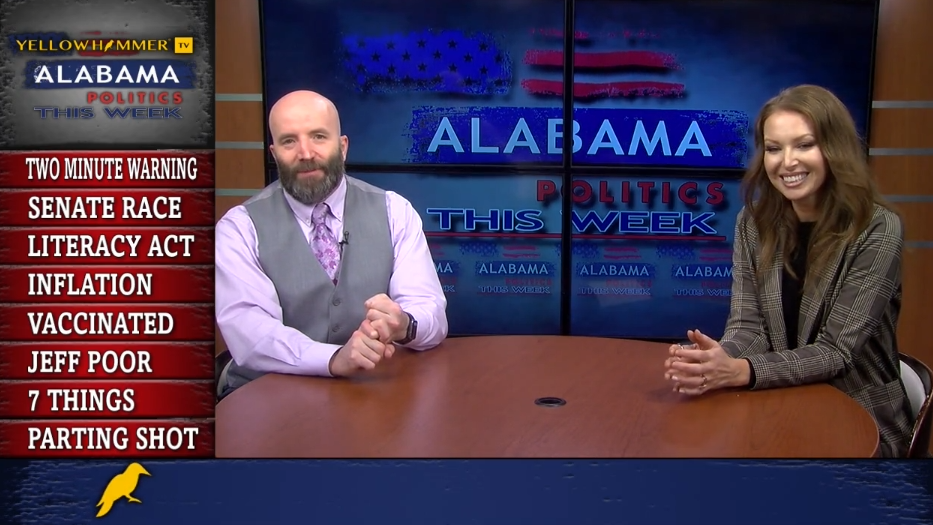7. Sorrell has high hopes for constitutional carry
- In the upcoming regular legislative session, State Representative Andrew Sorrell (R-Muscle Shoals) is expecting his constitutional carry bill to be passed. Sorrell has regularly been a proponent of constitutional carry.
- Sorrell said he’s “done so much work laying the groundwork for this bill alongside others.” He added he’s “going to have 40 co-sponsors on my bill this year, and that includes Speaker Mac McCutcheon, Pro-tem Victor Gaston,” as well as Education Trust Fund chairman Danny Garrett and caucus vice-chair Connie Rowe.
6. Let them eat cake
- As inflation rates threaten to reach all-time highs, some within the news media, including MSNBC’s Stephanie Ruhle, are working to rationalize an increase that’s caused everyday products to cost more, mostly impacting middle- and lower-class individuals and families.
- Ruhle said that “while nobody likes to pay more, on average, we have the money to do so. Household savings hit a record high over the pandemic, we didn’t really have anywhere to go out and spend.” Ruhle also justified her argument by mentioning how retail sales are expected to be at a “record” high this year, the stock market is at a record high, and home values have increased. Ruhle has understandably been called “out of touch,” “elitist” and “tone deaf” for her statements.
5. Democrats are scheming to take over
- U.S. Representative Mo Brooks (R-Huntsville) spent time during an interview on Newsmax TV’s “Stinchfield” discussing the “Build Back Better” reconciliation bill and how the public housing proposal “is a continuation of the socialist march on America.” He described socialism as “amoral, it is evil, it is dictatorial, and it’s the elimination of our liberty and freedom.”
- Brooks went on to say that this plan within the reconciliation bill “is a part of the Democrat scheme to take over America using every single weapon that they have at their disposal.” He added, “They are trying to destroy a lot of these nice neighborhoods that people have worked their whole lives to be able to live in by putting up high rises for public housing with all of the adverse effects that come with that public housing.”
4. Former Senate pro tem thinks Ivey is playing politics with Literacy Act delay
- Governor Kay Ivey has asked that the Alabama Legislature delay the Alabama Literacy Act that would require third graders to read at grade level before advancing to the fourth grade. Previously, the legislature had passed a delay, but Ivey vetoed the decision.
- State Senator Rodger Smitherman (D-Birmingham), former Senate pro tempore, said he was disappointed by Ivey’s request. Smitherman advised, “[T]he one-year thing that we’re just trying to kick it down the road, and what concerns me is that it seems like we’re just trying to get past this year, which is an election year…That doesn’t address, first of all, the criteria why the veto was established in the first place.”
3. Alabama Association of School Boards could remove itself from national board
- Due to how the National School Boards Association sent a letter to President Joe Biden and his administration requesting that there be more investigations and involvement from the federal government with parents complaining at school board meetings, many state school boards are removing the association with the national board.
- Alabama is now one of the 11 state school boards that have either stopped activity with the national board or are working to stop relationships. Executive director for the Alabama Association of School Boards Sally Smith said, “We believe any criminal activity should be an investigation by local law enforcement agencies; however, we do not believe there is a need for federal intervention at this juncture.” She went on to say that “AASB has withheld its dues to join NSBA for the current membership year,” despite bylaw requirements. A vote will be held next month to determine the future of their relationship.
2. Another court knocks down Biden’s private employer vaccine mandate
- The battle over President Joe Biden’s vaccine mandate for private employers with over 100 employees might be over sooner than most thought. In the second consecutive ruling on the matter, the Biden administration has lost the argument that the mandate is likely to survive a constitutional challenge because it is “fatally flawed.” The Fifth Circuit Court was not shy about this when striking it down, saying the administration errored when it relied on an “authority from an old statute employed in a novel manner, imposes nearly $3 billion in compliance costs, involves broad medical considerations that lie outside of OSHA’s core competencies and purports to definitively resolve one of today’s most hotly debated political issues.”
- The argument that the commerce clause would allow this unprecedented step by the Occupational Safety and Health Administration at the behest of the President of the United States was seemingly obliterated. The ruling from the Fifth Circuit found that the executive order “likely exceeds the federal government’s authority under the Commerce Clause because it regulates noneconomic inactivity that falls squarely within the States’ police power,” adding, “[A] person’s choice to remain unvaccinated and forgo regular testing is noneconomic inactivity.”
1. Only 400 kids in Alabama are getting the vaccine
- Since the coronavirus vaccine was approved for children ages five to 11, more than 400 children in this age group have received their first dose of the vaccine in Alabama, according to the Alabama Department of Public Health. There are 28,000 doses available in the state, so an argument about a supply issue with the vaccines wouldn’t make much sense.
- Nationally, there are almost 1 million children in this age group who have been vaccinated. It’s expected that there may be a delay in some of the vaccine availability, but not so much that demand is expected to exceed supply.













